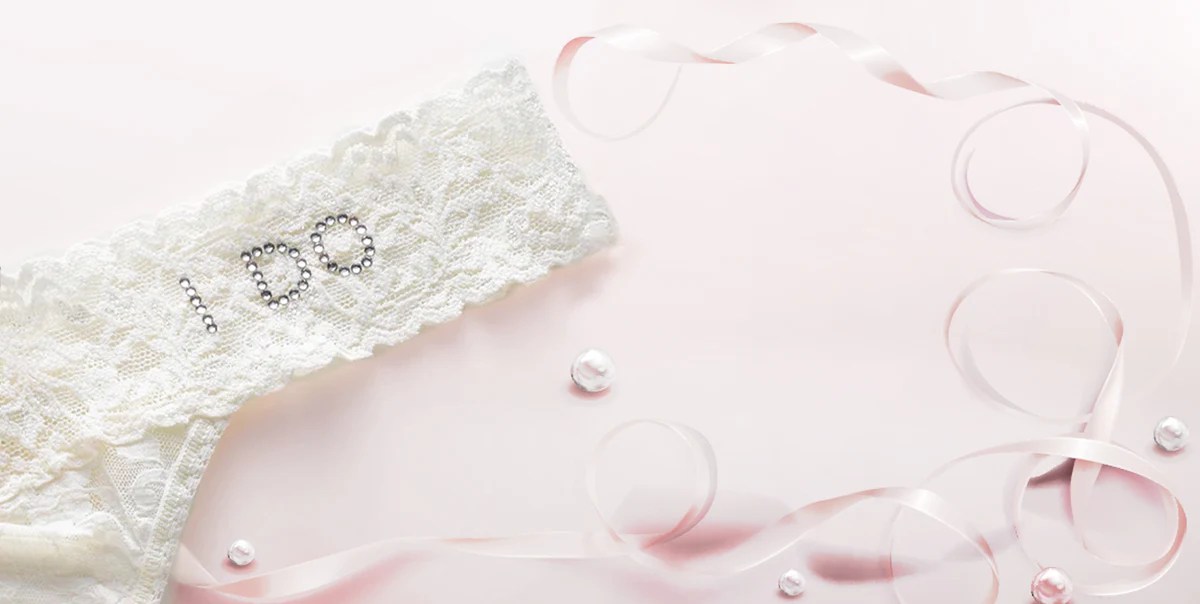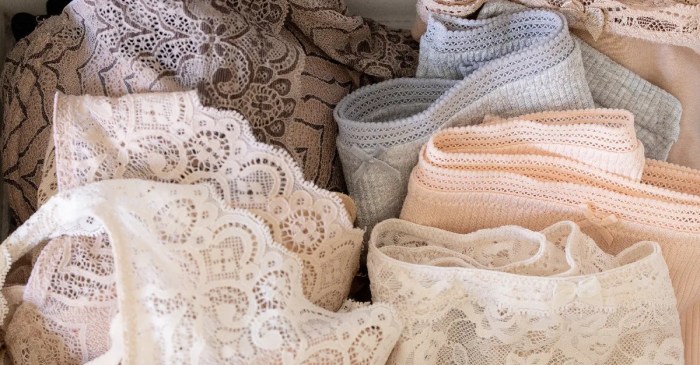Understanding Body Shapes and Wedding Dress Styles
Best wedding dress shapewear – Choosing the right wedding dress is crucial for feeling confident and beautiful on your special day. Understanding your body shape and how different dress styles complement it is the first step. This section explores common body shapes and provides guidance on selecting flattering wedding dresses, highlighting the supportive role of shapewear.
Common Body Shapes and Flattering Dress Styles
Several body shapes are commonly recognized. Understanding your shape helps you select a dress that accentuates your best features. Shapewear can further enhance the fit and create a streamlined silhouette.
| Body Shape | Recommended Dress Styles | Shapewear Suggestions | Visual Description |
|---|---|---|---|
| Hourglass | A-line, fit-and-flare, mermaid (with careful consideration) | A smoothing bodysuit or a high-waisted brief to enhance curves | Balanced proportions with a defined waist. The right shapewear enhances the natural curves without adding bulk. |
| Pear | A-line, ballgown, empire waist | Shapewear shorts or a slip focusing on the hip and thigh area | Wider hips and thighs compared to the bust and shoulders. Shapewear helps balance proportions. |
| Apple | Empire waist, A-line, V-neck | A smoothing bodysuit or a torso-length shapewear piece | Fuller bust and midsection. Shapewear helps create a more defined waistline. |
| Rectangle | A-line, ballgown, mermaid (with defined waistline) | A waist cincher or a bodysuit to create curves | Similar measurements across shoulders, waist, and hips. Shapewear can add curves and definition. |
Types of Shapewear for Wedding Dresses
A variety of shapewear options cater to different needs and preferences. Selecting the right type depends on your body shape, dress style, and personal comfort level. This section explores the different types of shapewear and their characteristics.
Shapewear Types and Their Features

Source: shopify.com
- Slips: Provide overall smoothing and shaping, often with adjustable straps. Ideal for creating a smoother silhouette under flowing fabrics.
- Bodysuits: Offer full-body shaping, from the bust to the thighs. Excellent for creating a streamlined look under fitted dresses.
- Corsets: Provide significant waist reduction and shaping. Best suited for dresses with a defined waistline, but may be less comfortable for extended wear.
- Shorts: Target the hip and thigh area, providing smoothing and shaping for lower body concerns.
Shapewear Materials: A Comparison
The material of your shapewear significantly impacts its effectiveness and comfort. Spandex, nylon, and microfiber are common choices, each with its own properties.
- Spandex: Offers excellent stretch and recovery, providing strong shaping and support.
- Nylon: A lightweight and breathable option, often blended with spandex for enhanced shaping.
- Microfiber: Known for its smoothness and ability to conceal lines under clothing.
Choosing the Right Shapewear for Your Wedding Dress
Several factors influence the choice of shapewear. This section provides a step-by-step guide to ensure a seamless and comfortable experience.
Factors to Consider When Selecting Shapewear, Best wedding dress shapewear
Consider the fabric and style of your wedding dress, your personal comfort level, and the level of shaping you desire. Proper sizing is essential for both comfort and effectiveness.
Determining the Correct Shapewear Size
Consult the manufacturer’s size chart and measure yourself accurately. Consider purchasing a size larger if you prefer a more comfortable fit.
Seamlessly Wearing Shapewear Under Different Wedding Dress Styles
Select shapewear that matches the level of shaping needed by the dress. For example, a slip might be ideal for a flowing A-line dress, while a bodysuit might be better for a more fitted style. Ensure the shapewear is smooth against the skin to prevent visible lines.
Step-by-Step Guide to Putting On Shapewear
- Start by putting on the shapewear slowly and carefully.
- Adjust the straps and closures to ensure a comfortable and secure fit.
- Smooth out any wrinkles or bumps to create a seamless silhouette.
- Try on your wedding dress to check the fit and make any necessary adjustments.
Shapewear and Wedding Dress Fabrics: Best Wedding Dress Shapewear

Source: townshop.com
The fabric of your wedding dress influences the choice of shapewear. This section explores the interaction between different fabrics and shapewear types.
Fabric-Shapewear Compatibility
Different fabrics have varying levels of transparency and texture. Choosing the right shapewear minimizes visible lines and maximizes comfort.
| Fabric Type | Recommended Shapewear | Considerations | Visual Description |
|---|---|---|---|
| Lace | Seamless microfiber bodysuit or slip | Avoid shapewear with heavy seams or textures that might show through the lace. | Lace’s delicate texture requires smooth, thin shapewear. |
| Satin | Seamless microfiber or nylon shapewear | Satin’s smooth surface can highlight any bumps or lines, so seamless shapewear is crucial. | Satin’s sheen requires smooth, undetectable shapewear. |
| Silk | Lightweight, breathable shapewear | Silk is delicate, so choose shapewear that won’t snag or cause friction. | Silk’s delicate nature necessitates gentle, smooth shapewear. |
Maintaining Comfort and Confidence with Shapewear
Comfort and confidence are paramount on your wedding day. Proper care and maintenance of your shapewear contribute significantly to this.
Breathable and Comfortable Shapewear

Source: xogrp.com
Opt for shapewear made from breathable fabrics like nylon or microfiber blends. Look for features like ventilation panels to improve airflow and prevent overheating.
Shapewear Care and Maintenance
Always follow the manufacturer’s care instructions. Hand-washing or using a delicate cycle in a washing machine is usually recommended.
Impact of Shapewear on Posture and Movement
Well-fitting shapewear can improve posture by providing support to the core. However, overly tight shapewear can restrict movement and cause discomfort.
Preventing Discomfort and Chafing
Apply a thin layer of body lotion or powder to areas prone to chafing before putting on shapewear. Ensure the shapewear is not too tight.
Illustrative Examples of Shapewear Under Different Wedding Dresses
Visualizing how different shapewear types interact with various wedding dress styles enhances understanding. This section provides detailed descriptions of how the combination creates specific silhouettes.
Shapewear and Silhouette Combinations
An A-line dress paired with a smoothing slip creates a graceful, flowing silhouette, enhancing the natural shape. A mermaid gown with a bodysuit creates a more defined, hourglass figure, emphasizing the curves. A ballgown with shapewear shorts creates a streamlined look from the waist down, complementing the voluminous skirt. The choice of shapewear significantly impacts the overall visual effect, enhancing the bride’s figure and the dress’s design.
Answers to Common Questions
Can I wear shapewear all day without discomfort?
Choosing breathable, high-quality shapewear in the correct size is crucial for all-day comfort. Look for materials like microfiber or cotton blends for better breathability.
How do I prevent visible panty lines (VPLs) under my dress?
Select seamless shapewear designed to minimize VPLs. Consider high-waisted options or those with laser-cut edges for a smooth, invisible finish under your gown.
What should I do if my shapewear is too tight?
If your shapewear feels too constricting, immediately remove it. Never compromise your comfort or circulation. Ensure you’ve chosen the correct size based on the manufacturer’s guidelines.
How do I wash and care for my wedding shapewear?
Always follow the care instructions on the label. Generally, hand washing in cold water with a gentle detergent and air drying is recommended to maintain shape and elasticity.




